Travelers 2013 Annual Report Download - page 201
Download and view the complete annual report
Please find page 201 of the 2013 Travelers annual report below. You can navigate through the pages in the report by either clicking on the pages listed below, or by using the keyword search tool below to find specific information within the annual report.-
 1
1 -
 2
2 -
 3
3 -
 4
4 -
 5
5 -
 6
6 -
 7
7 -
 8
8 -
 9
9 -
 10
10 -
 11
11 -
 12
12 -
 13
13 -
 14
14 -
 15
15 -
 16
16 -
 17
17 -
 18
18 -
 19
19 -
 20
20 -
 21
21 -
 22
22 -
 23
23 -
 24
24 -
 25
25 -
 26
26 -
 27
27 -
 28
28 -
 29
29 -
 30
30 -
 31
31 -
 32
32 -
 33
33 -
 34
34 -
 35
35 -
 36
36 -
 37
37 -
 38
38 -
 39
39 -
 40
40 -
 41
41 -
 42
42 -
 43
43 -
 44
44 -
 45
45 -
 46
46 -
 47
47 -
 48
48 -
 49
49 -
 50
50 -
 51
51 -
 52
52 -
 53
53 -
 54
54 -
 55
55 -
 56
56 -
 57
57 -
 58
58 -
 59
59 -
 60
60 -
 61
61 -
 62
62 -
 63
63 -
 64
64 -
 65
65 -
 66
66 -
 67
67 -
 68
68 -
 69
69 -
 70
70 -
 71
71 -
 72
72 -
 73
73 -
 74
74 -
 75
75 -
 76
76 -
 77
77 -
 78
78 -
 79
79 -
 80
80 -
 81
81 -
 82
82 -
 83
83 -
 84
84 -
 85
85 -
 86
86 -
 87
87 -
 88
88 -
 89
89 -
 90
90 -
 91
91 -
 92
92 -
 93
93 -
 94
94 -
 95
95 -
 96
96 -
 97
97 -
 98
98 -
 99
99 -
 100
100 -
 101
101 -
 102
102 -
 103
103 -
 104
104 -
 105
105 -
 106
106 -
 107
107 -
 108
108 -
 109
109 -
 110
110 -
 111
111 -
 112
112 -
 113
113 -
 114
114 -
 115
115 -
 116
116 -
 117
117 -
 118
118 -
 119
119 -
 120
120 -
 121
121 -
 122
122 -
 123
123 -
 124
124 -
 125
125 -
 126
126 -
 127
127 -
 128
128 -
 129
129 -
 130
130 -
 131
131 -
 132
132 -
 133
133 -
 134
134 -
 135
135 -
 136
136 -
 137
137 -
 138
138 -
 139
139 -
 140
140 -
 141
141 -
 142
142 -
 143
143 -
 144
144 -
 145
145 -
 146
146 -
 147
147 -
 148
148 -
 149
149 -
 150
150 -
 151
151 -
 152
152 -
 153
153 -
 154
154 -
 155
155 -
 156
156 -
 157
157 -
 158
158 -
 159
159 -
 160
160 -
 161
161 -
 162
162 -
 163
163 -
 164
164 -
 165
165 -
 166
166 -
 167
167 -
 168
168 -
 169
169 -
 170
170 -
 171
171 -
 172
172 -
 173
173 -
 174
174 -
 175
175 -
 176
176 -
 177
177 -
 178
178 -
 179
179 -
 180
180 -
 181
181 -
 182
182 -
 183
183 -
 184
184 -
 185
185 -
 186
186 -
 187
187 -
 188
188 -
 189
189 -
 190
190 -
 191
191 -
 192
192 -
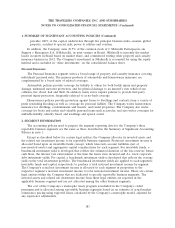 193
193 -
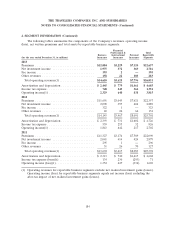 194
194 -
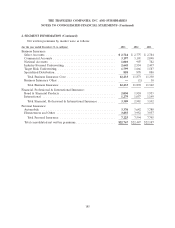 195
195 -
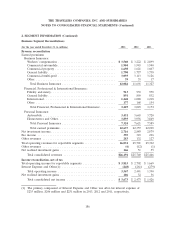 196
196 -
 197
197 -
 198
198 -
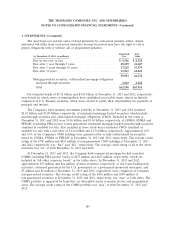 199
199 -
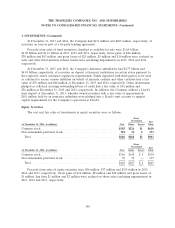 200
200 -
 201
201 -
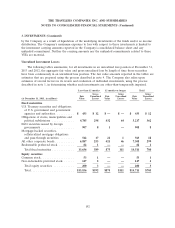 202
202 -
 203
203 -
 204
204 -
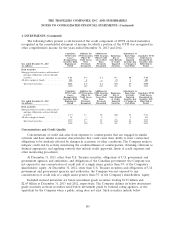 205
205 -
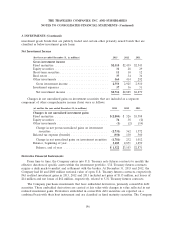 206
206 -
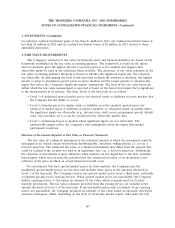 207
207 -
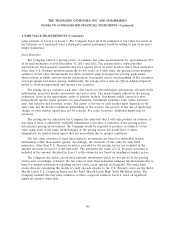 208
208 -
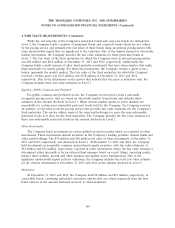 209
209 -
 210
210 -
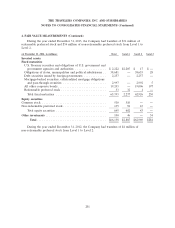 211
211 -
 212
212 -
 213
213 -
 214
214 -
 215
215 -
 216
216 -
 217
217 -
 218
218 -
 219
219 -
 220
220 -
 221
221 -
 222
222 -
 223
223 -
 224
224 -
 225
225 -
 226
226 -
 227
227 -
 228
228 -
 229
229 -
 230
230 -
 231
231 -
 232
232 -
 233
233 -
 234
234 -
 235
235 -
 236
236 -
 237
237 -
 238
238 -
 239
239 -
 240
240 -
 241
241 -
 242
242 -
 243
243 -
 244
244 -
 245
245 -
 246
246 -
 247
247 -
 248
248 -
 249
249 -
 250
250 -
 251
251 -
 252
252 -
 253
253 -
 254
254 -
 255
255 -
 256
256 -
 257
257 -
 258
258 -
 259
259 -
 260
260 -
 261
261 -
 262
262 -
 263
263 -
 264
264 -
 265
265 -
 266
266 -
 267
267 -
 268
268 -
 269
269 -
 270
270 -
 271
271 -
 272
272 -
 273
273 -
 274
274 -
 275
275 -
 276
276 -
 277
277 -
 278
278 -
 279
279 -
 280
280 -
 281
281 -
 282
282 -
 283
283 -
 284
284 -
 285
285 -
 286
286 -
 287
287 -
 288
288 -
 289
289 -
 290
290 -
 291
291 -
 292
292 -
 293
293 -
 294
294 -
 295
295 -
 296
296 -
 297
297 -
 298
298 -
 299
299 -
 300
300 -
 301
301 -
 302
302 -
 303
303 -
 304
304
 |
 |
THE TRAVELERS COMPANIES, INC. AND SUBSIDIARIES
NOTES TO CONSOLIDATED FINANCIAL STATEMENTS (Continued)
3. INVESTMENTS (Continued)
Real Estate
The Company’s real estate investments include warehouses, office buildings and other commercial
land and properties that are directly owned. The Company negotiates commercial leases with individual
tenants through unrelated, licensed real estate brokers. Negotiated terms and conditions include, among
others, rental rates, length of lease period and improvements to the premises to be provided by the
landlord.
Proceeds from the sale of real estate investments were $18 million and $53 million in 2013 and
2012, respectively. Gross gains of $7 million and $19 million were realized on those sales in 2013 and
2012, respectively, and there were no gross losses. In 2011, there were no sales of real estate
investments. The Company had no real estate held for sale at December 31, 2013 and 2012.
Accumulated depreciation on real estate held for investment purposes was $264 million and
$242 million at December 31, 2013 and 2012, respectively.
Future minimum rental income on operating leases relating to the Company’s real estate
properties is expected to be $84 million, $75 million, $58 million, $41 million and $30 million for 2014,
2015, 2016, 2017 and 2018, respectively, and $48 million for 2019 and thereafter.
Short-term Securities
The Company’s short-term securities consist of Aaa-rated registered money market funds, U.S.
Treasury securities, high-quality commercial paper (primarily A1/P1) and high-quality corporate
securities purchased within a year to their maturity with a combined average of 80 days to maturity at
December 31, 2013. The amortized cost of these securities, which totaled $3.88 billion and $3.48 billion
at December 31, 2013 and 2012, respectively, approximated their fair value.
Variable Interest Entities
Entities which do not have sufficient equity at risk to allow the entity to finance its activities
without additional financial support or in which the equity investors, as a group, do not have the
characteristic of a controlling financial interest are referred to as variable interest entities (VIE). A
VIE is consolidated by the variable interest holder that is determined to have the controlling financial
interest (primary beneficiary) as a result of having both the power to direct the activities of a VIE that
most significantly impact the VIE’s economic performance and the obligation to absorb losses or right
to receive benefits from the VIE that could potentially be significant to the VIE. The Company
determines whether it is the primary beneficiary of an entity subject to consolidation based on a
qualitative assessment of the VIE’s capital structure, contractual terms, nature of the VIE’s operations
and purpose and the Company’s relative exposure to the related risks of the VIE on the date it
becomes initially involved in the VIE. The Company reassesses its VIE determination with respect to
an entity on an ongoing basis.
The Company is a passive investor in limited partner equity interests issued by third party VIEs.
These include certain of the Company’s investments in private equity limited partnerships, hedge funds
and real estate partnerships where the Company is not related to the general partner. These
investments are generally accounted for under the equity method and reported in the Company’s
consolidated balance sheet as other investments unless the Company is deemed the primary beneficiary.
These equity interests generally cannot be redeemed. Distributions from these investments are received
191
